The Catalyst Killing - [33]
To this, I asked if Henry Alfred Lien from Valdres was one of the old friends with whom he had kept in touch.
He shook his head in irritation. He had only met Lien briefly a couple of times during the war, and he had never been in Valdres. And what was more, the government and police should stop wasting taxpayers’ money on recording who he kept in touch with or speculating about what he might think about social developments, so long as he paid over fifty thousand kroner a year in tax and did not break the law.
And so I had to stop there for the time being. I had no problem whatsoever imagining Christian Magnus Eggen as a criminal and traitor. He seemed to be the prototype of a bitter old Nazi. Everything he said sounded like self-justification. He was certainly high on the list of people I had met in the course of this investigation who I would be more than happy to arrest. At the top, in fact.
But, unfortunately, he was right: at present, there was nothing whatsoever to link him to Falko Reinhardt’s disappearance, and any connection to the murder of Marie Morgenstierne was even more tenuous.
I did, however, take care to note that he did not have an alibi for the evening of the murder, and that he had a walking stick standing out in the hallway.
‘Age takes its toll, even for an Aryan,’ he remarked bitterly, when he saw me looking at the walking stick.
We parted a few moments later without either of us feeling the need to shake hands.
VIII
It was half past four when I got back to the office. There was a message lying there to say that the head of the police security service had gone home for the day and would be out on a secret mission the following day. If it was in connection with the murder investigation, however, he could give me fifteen minutes at the end of the day tomorrow, at six o’clock, to be precise.
I immediately confirmed this arrangement and silently hoped that the case would somehow resolve itself one way or another in the meantime. The last thing I wanted was a conflict of interest with the head of the police security service.
My last task for the official working day could be completed with the help of a telephone. It was answered by Astrid Reinhardt, at home in Grünerløkka, after the second ring. She was able to tell me straight away that her son’s passport had not been found, but that they did not in fact know where he had kept it before he disappeared. She added pointedly that the family did have a tradition of keeping their passports in secret places.
Her son’s post office savings book had been left in his bedroom. There was seven thousand kroner in the account. He had withdrawn a couple of thousand three months before his disappearance, but they had no idea what he had used it for. His parents had at first hoped that the withdrawal was an indication that he was alive somewhere else. But this hope dwindled as time passed, and now they thought that perhaps the withdrawal of the money had absolutely nothing to do with his disappearance. He might have wanted to give the money to a political cause or a friend in need, his mother said. Both would have been typical of him, she added, her voice filled with maternal pride.
I thanked her for her help, and promised to call them immediately should anything new be discovered.
IX
At five o’clock the calm of my office was disturbed by a knock at the door.
The pathologist was standing outside, once again looking slightly abashed.
‘You may perhaps have suspected this already, but I have just discovered something concerning the late Marie Morgenstierne that I thought you should know immediately,’ he said.
I indicated impatiently that he should continue. But his previous visit had obviously made him more cautious.
‘First of all I concentrated on the bullet wound in her chest, which was clearly the cause of death. The rest of her body was so badly injured that it was not easy to examine. But I have finished the autopsy now. And there is no doubt that when she died she was…’
He looked at me questioningly. I gave an irritated shrug. There was a flash of triumphant relief in his eyes when he carried on.
‘Pregnant! Very early stages, possibly no more than the fourth or fifth week. And we can’t be sure that she even knew herself, though she may have noticed something. Whatever the case, Marie Morgenstierne was expecting a baby when she died. And I presume that that is of interest to the investigation?’
I nodded, and told him truthfully that I had had no idea and that it was definitely of potential interest to the investigation. He seemed very pleased that he had been able to contribute something, and shook my hand with feeling.
Once the pathologist had closed the door behind him, I sat down to spend the next half an hour writing a report for my boss. It was quick enough to give an account of the day’s events, but developments in the case were slower. It was with great relief that I popped the report into my boss’s pigeonhole at ten to six, then got into my car to drive to Erling Skjalgsson’s Street.
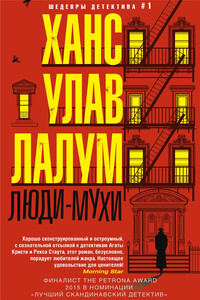
Убит бывший лидер норвежского Сопротивления и бывший член кабинета министров Харальд Олесен. Его тело обнаружено в запертой квартире, следов взлома нет, орудие убийства отсутствует. На звук выстрела к двери Олесена сбежались все соседи, но никого не увидели. Инспектор уголовного розыска Колбьёрн Кристиансен считает, что убийство, скорее всего, совершил кто-то из них. Более того, он полагает, что их показания лживы.
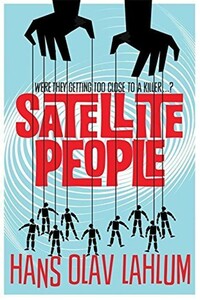
A gripping, evocative, and ingenious mystery which pays homage to Agatha Christie, Satellite People is the second Norwegian mystery in Hans Olav Lahlum's series. Oslo, 1969: When a wealthy man collapses and dies during a dinner party, Norwegian Police Inspector Kolbjorn Kristiansen, known as K2, is left shaken. For the victim, Magdalon Schelderup, a multimillionaire businessman and former resistance fighter, had contacted him only the day before, fearing for his life. It soon becomes clear that every one of Schelderup's 10 dinner guests is a suspect in the case.
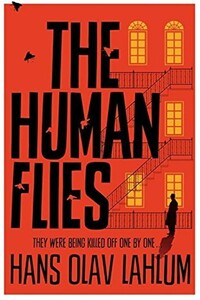
Oslo, 1968: ambitious young detective Inspector Kolbjorn Kristiansen is called to an apartment block, where a man has been found murdered. The victim, Harald Olesen, was a legendary hero of the Resistance during the Nazi occupation, and at first it is difficult to imagine who could have wanted him dead. But as Detective Inspector Kolbjorn Kristiansen (known as K2) begins to investigate, it seems clear that the murderer could only be one of Olesen's fellow tenants in the building. Soon, with the help of Patricia – a brilliant young woman confined to a wheelchair following a terrible accident – K2 will begin to untangle the web of lies surrounding Olesen's neighbors; each of whom, it seems, had their own reasons for wanting Olesen dead.
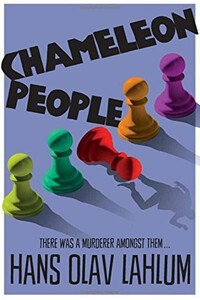
From the international bestselling author, Hans Olav Lahlum, comes Chameleon People, the fourth murder mystery in the K2 and Patricia series.1972. On a cold March morning the weekend peace is broken when a frantic young cyclist rings on Inspector Kolbjorn 'K2' Kristiansen's doorbell, desperate to speak to the detective.Compelled to help, K2 lets the boy inside, only to discover that he is being pursued by K2's colleagues in the Oslo police. A bloody knife is quickly found in the young man's pocket: a knife that matches the stab wounds of a politician murdered just a few streets away.The evidence seems clear-cut, and the arrest couldn't be easier.
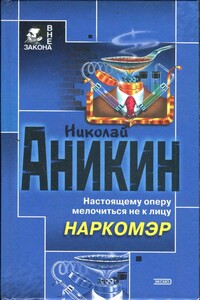
Тупик. Стена. Старый кирпич, обрывки паутины. А присмотреться — вроде следы вокруг. Может, отхожее место здесь, в глухом углу? Так нет, все чисто. Кто же сюда наведывается и зачем? И что охраняет тут охрана? Да вот эту стену и охраняет. Она, как выяснилось, с секретом: время от времени отъезжает в сторону. За ней цех. А в цеху производят под видом лекарства дурь. Полковник Кожемякин все это выведал. Но надо проникнуть внутрь и схватить за руку отравителей, наживающихся на здоровье собственного народа. А это будет потруднее…

«Посмотреть в послезавтра» – остросюжетный роман-триллер Надежды Молчадской, главная изюминка которого – атмосфера таинственности и нарастающая интрига.Девушка по имени Венера впадает в кому при загадочных обстоятельствах. Спецслужбы переправляют ее из закрытого городка Нигдельск в Москву в спецклинику, где известный ученый пытается понять, что явилось причиной ее состояния. Его исследования приводят к неожиданным результатам: он обнаруживает, что их связывает тайна из его прошлого.
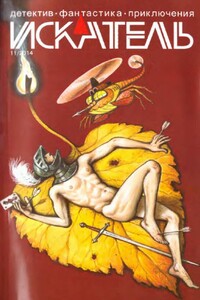
«ИСКАТЕЛЬ» — советский и российский литературный альманах. Издаётся с 1961 года. Публикует фантастические, приключенческие, детективные, военно-патриотические произведения, научно-популярные очерки и статьи. В 1961–1996 годах — литературное приложение к журналу «Вокруг света», с 1996 года — независимое издание.В 1961–1996 годах выходил шесть раз в год, в 1997–2002 годах — ежемесячно; с 2003 года выходит непериодически.Содержание:Анатолий Королев ПОЛИЦЕЙСКИЙ (повесть)Олег Быстров УКРАДИ МОЮ ЖИЗНЬ (окончание) (повесть)Владимир Лебедев ГОСТИ ИЗ НИОТКУДА.
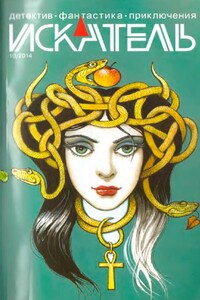
«ИСКАТЕЛЬ» — советский и российский литературный альманах. Издается с 1961 года. Публикует фантастические, приключенческие, детективные, военно-патриотические произведения, научно-популярные очерки и статьи. В 1961–1996 годах — литературное приложение к журналу «Вокруг света», с 1996 года — независимое издание.В 1961–1996 годах выходил шесть раз в год, в 1997–2002 годах — ежемесячно; с 2003 года выходит непериодически.Содержание:Олег Быстров УКРАДИ МОЮ ЖИЗНЬ (повесть);Петр Любестовский КЛЕТКА ДЛЯ НУТРИИ (повесть)
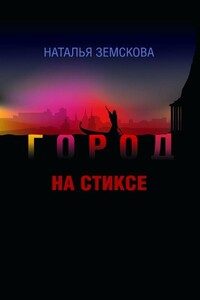
Наталья Земскова — журналист, театральный критик. В 2010 г. в издательстве «Астрель» (Санкт-Петербург) вышел её роман «Детородный возраст», который выдержал несколько переизданий. Остросюжетный роман «Город на Стиксе» — вторая книга писательницы. Молодая героиня, мечтает выйти замуж и уехать из забитого новостройками областного центра. Но вот у неё на глазах оживают тайны и легенды большого губернского города в центре России, судьбы талантливых людей, живущих рядом с нею. Роман «Город на Стиксе» — о выборе художника — провинция или столица? О том, чем рано или поздно приходится расплачиваться современному человеку, не верящему ни в Бога, ни в черта, а только в свой дар — за каждый неверный шаг.
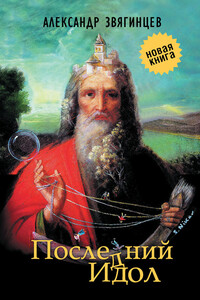
В сборник «Последний идол» вошли произведения Александра Звягинцева разных лет и разных жанров. Они объединены общей темой исторической памяти и личной ответственности человека в схватке со злом, которое порой предстает в самых неожиданных обличиях. Публикуются рассказы из циклов о делах следователей Багринцева и Северина, прокуроров Ольгина и Шип — уже известных читателям по сборнику Звягинцева «Кто-то из вас должен умереть!» (2012). Впервые увидит свет пьеса «Последний идол», а также цикл очерков писателя о событиях вокруг значительных фигур общественной и политической жизни России XIX–XX веков — от Петра Столыпина до Солженицына, от Александра Керенского до Льва Шейнина.